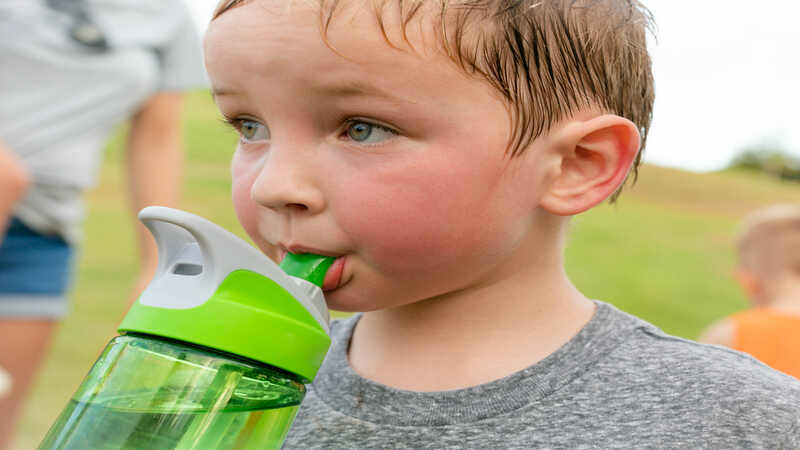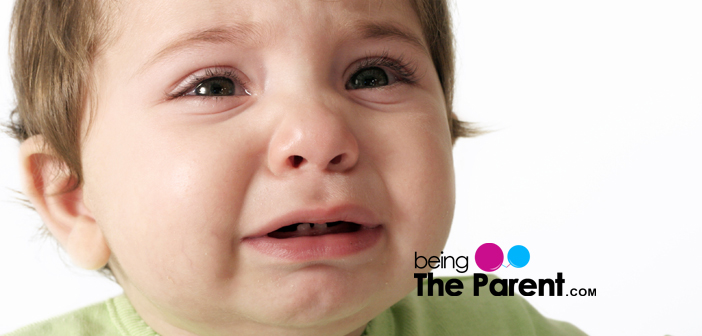
Now though the word dehydration is very common, yet you would never imagine that your little toddler would become a victim of it. Dehydration is a situation where a patient does not have adequate fluids as per what the body requires. There is every chance any little kid can become dehydrated in the severe heat during summer. You need to be aware of the most common symptoms of dehydration which may occur in your child so that you can take immediate measures to combat.
What Is Dehydration?
On a daily basis, we all lose our bodily fluids to sweat, tears, urine, stool, through the skin, and even as we breathe. This loss is met by our daily dose of water and salts, through our regular diet. However, when large amounts of water are lost from the boy due to an illness, like fever or diarrhea, or excessive playing or exercise etc. it can result in dehydration because the loss of fluids is not compensated through diet and otherwise. Because toddlers are physically very active, they sometimes tend to go long periods without drinking adequate water or when they are sick. Dehydration in toddlers can cause them to be cranky, lethargic and dizzy.
Firstly you need to know what causes dehydration in children.
What Factors Can Be Responsible For Dehydration In Toddlers?
Children are more prone to dehydration than adults. The most common causes of dehydration in children are:
- Overheating: Excessive physical activity on an extremely hot day or even being cooped up in a sweltering or stuffy room can trigger dehydration in your toddler
- Diarrhea or vomiting: There is every chance that your child will get dehydrated if he is suffering from severe vomiting or loose motions. They tend to lose quite a lot of fluids and you have to ensure his fluid intake is adequate enough to replenish his loss. Vomiting is another reason that may cause your child to lose his bodily fluids
- Fever: Even fever can cause dehydration and this is why one is always advised to make sure your little one is replenished with fluids in whatever form he wants it
- Refusal to drink any fluids: Suppose your little one is suffering from acute throat pain or even hand, foot and mouth disease, they may refuse to drink fluids due to the severity of pain in their throat. These kinds of circumstances may also cause dehydration in your toddler
What Are The Symptoms Of Dehydration In Toddlers?
The common tell tale signs of dehydration include:
- Not having passed urine for more than six hours
- No tears when your toddler is crying
- Exhaustion
- Parched and dry lips and mouth
- Pronounced yellow urine with strong smell

Severe cases which need immediate attention may even exhibit the below symptoms as well:
- Eyes which look sunken
- Dizziness or light-headedness
- Feeling excessively sleepy
- Cold feet and hands and have splotchy appearance
If you feel your toddler is a victim of dehydration which requires immediate attention, the best course would be to immediately rush him/her to the emergency. If on the other hand you feel it is just a mild case, you could just ring up your pediatrician who will provide you with the right kind of advice about what needs to be done.
Treating Dehydration In Toddlers
In normal cases, your doctor will want to see your kid to assess the extent of dehydration and then decide the course of treatment accordingly. Mild cases only require prescribed electrolytes to make up the quantity of fluids the child has lost. The regularly prescribed electrolytes which are available in all leading pharmacies include Re Vital, Infalyte and Pedialyte. These electrolytes are ideal to reload the required amount of salts and water. How much to provide depends on the weight and condition of each child. There is every chance your child may not take well to the taste of electrolyte and if this is the case, you may need to ask your doctor for alternatives.
Preventive Steps to Avoid Dehydration
Like the saying goes, prevention is always better than cure and dehydration is one contingency which can be avoided if you take proper care and ensure your child remains hydrated always. Anyhow the main preventive measures to avert dehydration are:
- Keep a strict watch on your toddler and make sure he drinks adequate quantity of juices and water in extreme heat conditions
- Be extremely alert if your child is suffering from vomiting or fever and ascertain that the right amount of liquids are being consumed according to the situation
- Encourage your kid to always drink water; this is a simple and healthy habit you can begin inculcating in your toddler so that he will never have to experience this issue whatever be his condition
- If you find any mild form of dehydration in your kid, you could even start on electrolytes which will ensure the condition does not get too severe or out of hand
Always bear in mind the fact that chances of dehydration are always more in young children rather than adults and if ignored, it can cause a life threatening situation. Never neglect this condition as it can blow out of proportion if ignored.

